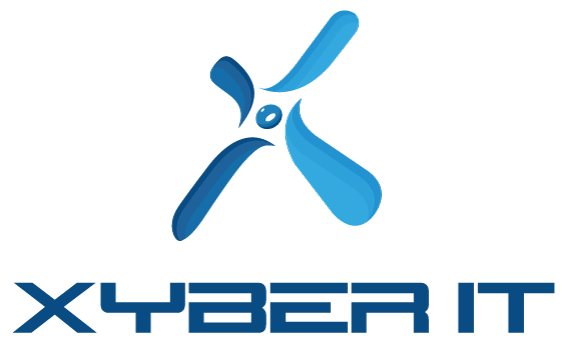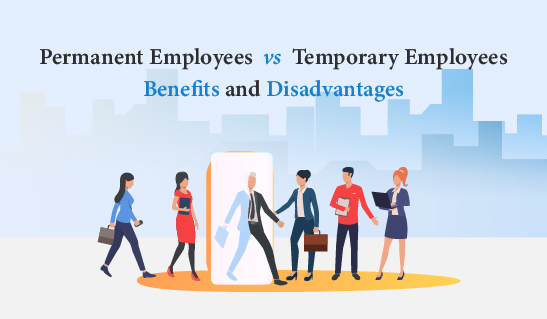Employers require either temporary or permanent employees or a combination of both to achieve their work and organizational goals. So it is important for you to define the kind of employees your organization requires. Defining the types of needed employees helps your organization accordingly plan and make efforts to procure the employees. Alternatively, you can seek help from a professional staffing company for fulfilling your temp/perm or both kinds of employee hiring needs in a fast and hassle-free manner.
In this particular blog, we will discuss the benefits and disadvantages of employing permanent and temporary employees in organizations. This will help you in deciding which kind of employees best fit your organizational requirements and proceed accordingly. So pay attention till the end.
Permanent Employees
A permanent employee’s job is for a long term and it has no fixed ending date. An employee in a permanent role can work for the same organization for months, years or his entire career.
An employee in a permanent position can work either full-time or part-time. Employees in permanent positions receive more company benefits than temporary employees but they have less flexible work timings compared to employees in temporary roles.
There are many reasons for permanent employees to pursue this type of role. Here are some of the most common reasons for people to opt for permanent jobs.
- They want to leverage their work experience or connections in the industry.
- They desire to commit to a long-term role, so they can plan for building their career.
- They can rely on their employer to award them a full range of healthcare and retirement benefits.
Benefits of Permanent Employment
1.Permanent jobs provide a consistent income and long-term security which is reassuring for many employees. The consistent income also helps them in enhanced financial planning and stability.
2. Employees working in permanent positions usually receive a full suite of employee benefits, including retirement plans, health insurance and paid leave. These benefits are a safety net for them. In comparison, people employed in temporary jobs don’t get this safety net.
3. Long-term roles provide employees opportunities for progressing their career, building their skills and growing professionally.
4. Long-term employees are able to build stronger relationships with their colleagues and management which in turn enhances teamwork and job satisfaction. People working together as a team in a collaborative environment can speed up a company’s working capacity. Also, their collective efforts can contribute to the achievement of its short and long-term goals.
5. As employers view permanent employees as long-term assets, they provide them opportunities for training and development. Also, they recognize and provide them rewards for their contributions.
6. A permanent role provides stability to the employees and allows a predictable routine for them. As a result, many find this work arrangement comforting.
7. Permanent employees get a chance to fully integrate into the company’s culture and align with its goals and values.
8. They also benefit from stronger legal protections and rights in the workplace.
9. With permanent employees, the company is not under pressure to find another temporary staff.
Downsides of Permanent Jobs
1. Employees in permanent roles need to adhere to a fixed schedule. Also, they get less personal flexibility at work.
2. Over time, the routine nature of permanent work can cause boredom and burnout in employees.
3. Career advancement can be sometimes slower within the same company in comparison to switching between temporary roles.
4. Permanent jobs might provide a small number of opportunities for varied experiences when compared to temporary jobs. The long-term commitment required in permanent roles may not appeal to those looking for diverse experiences or career exploration opportunities. The comfort of stability can sometimes hamper excitement at work and professional growth.
5. To find employees for their permanent positions, employing organizations need to make more extensive, costly and time-consuming recruitment efforts. They have to perform lots of steps and formalities for recruiting permanent employees.
The organizations need to advertise open positions, screen candidates and hold interviews which consumes a lot of their time and resources. Also, this can affect their ongoing projects and reduce their productivity. Here a staffing service can help to reduce the burden of an organization and cut their costs and time by focusing on and performing the most important recruiting tasks for the organization.
6. Moreover, organizations have to perform extensive processes for hiring and relieving permanent employees, thus resulting in additional paperwork and costs.
Let’s now talk about the advantages and disadvantages of temporary employment.
Temporary Employees
Temporary employees are those employees who work in temporary employment, contract employment or those employed on a freelance basis. Their job lasts for a short and defined period of time. The time frame of their job can be brief, lasting a few days or long, lasting a few weeks. In some instances, a temporary employee may even work for a longer time frame of a couple of months or the length of the entire season.
There are a few options for people who are seeking short-term roles. There are many organizations that hire temporary employees in a direct manner. So they can apply with them if they want to work there.
In other instances, people might opt to work for a staffing agency that acts as a facilitator between temporary employees and organizations requiring help for filling their short-term positions. The advantage of getting hired through a staffing agency is that employees are able to secure more consistent short-term roles. Also, they can access temporary worker benefits from the staffing agency.
There are many reasons for candidates to go for short-term employment. These are some of the most common motives for people to do a short-term job.
- They want to gain experience in a given field. Alternatively, they intend to build a professional network by working in a series of temporary roles.
- They prefer the smaller time commitment associated with a temporary job.
- A given job position is available only on a temporary basis and there is no permanent role available in the organization.
- They have experienced unemployment for an extended time. So they have decided to go for one or more temporary roles as they continue their search for a permanent position.
Benefits of Temporary Employment
1.Temporary jobs can be extremely useful for getting permanent employment. Many employers use temporary roles to analyze the performance of potential long-term hires before deciding to hire them for permanent roles. Thus temporary positions are a strategic entry point for job seekers.
2.Moreover, temporary jobs allow individuals to obtain diverse and extensive experience across different roles and industries. Thus, they are able to build a versatile and robust skill set.
3.Temporary positions grant employees an opportunity to widen their professional network. They get exposed to a wide range of contacts and increase future job opportunities.
4.Temporary work provides employees a significant benefit in terms of flexibility. It provides them access to varied work hours and job locations. Moreover, temporary work enables them to accommodate personal schedules and lifestyle preferences.
This can particularly benefit those balancing multiple commitments or those wanting to explore different career paths without committing to long-term employment. Moreover, the variety which is an integral part of temporary work keeps things interesting. So people in temporary roles are able to avoid monotony in long-term roles.
5.In many instances, temporary positions provide a quicker route to employment in comparison to permanent roles. They provide employees immediate income and work experience. This can be a vital lifeline for people who are in between jobs. The temporary employment helps to lessen their financial stress and keep their resumes active.
The adaptability built through regular changing of jobs is a highly valued skill in a world that values resilience and agility. Temping promotes such adaptability by exposing employees to new people, trends and practices.
6.Candidates in temporary positions have a special skill set which helps a company in achieving its short-term goals.
7. It is also a cost-efficient way to ensure that someone is great at doing his job or the person is good enough for the job position or the company.
8. Temporary employment is the best solution for organizations to deal with employee shortages, fluctuating volumes of work, unexpected project demand or urgent project deliverables.
9. Generally temporary employees are experience holders as they have worked with many companies. Also, they are aware of diverse work cultures, job policies, company structure and ethics.
10. People who want to transition to a different field require relevant experience before they can apply for a permanent job in the new field. By working in multiple temporary jobs, they are able to gain sufficient experience in a given industry. Also, they are able to make professional connections in the industry. The experience and connections help them in getting a permanent job in the desired industry.
Disadvantages of Temporary Employment
1. Many seasonal or short-term jobs don’t provide paid time off or medical insurance, but some do provide these benefits. However, staffing agencies keen on attracting top talent for temporary positions are themselves providing healthcare coverage, paid time off and 401K options to the hired candidates.
2. Job security is another major concern for people working in temporary roles. Due to the short-term nature of temporary work, there is less stability in temp roles in comparison to perm roles. Moreover, the inconsistent nature of temp work can result in periods of unemployment which consequently makes financial planning difficult. Furthermore, the continuous transition between jobs can emotionally exhaust employees and cause uncertainty about their future.
3. Social isolation can be a real issue for some employees in temporary positions. They may feel ignored by the permanent team and miss out on the support and camaraderie associated with long-term employment.
The feeling of being an outsider can be made worse by the treatment and perception of temps. They may get to face the “just a temp” attitude from permanently employed staff. Also, they may be assigned responsibilities that are less desirable and often monotonous.
In the majority of scenarios, it becomes extremely difficult for employers to keep the morale up of temp workers because they feel they are not permanent and will not stay with the organization for long.
4. Temporary employees have limited power and influence which can be frustrating for them. Due to having less say in workplace-related decisions and policies, they may get the feeling like they have little control over their work environment.
5. Employment in temporary roles might offer fewer opportunities for advancement within an organization.
6. Employers may invest less in the training and skill and knowledge development of temporary employees which affects their professional growth.
7. Irrespective of the extent of experience of temporary candidates, they still need to be trained and provided guidance after they are hired. This is very much required for integrating temporary candidates with the policies, structure and work ethics of the organization.
8. Temporary employees might also be working for other organizations, so their time and energy cannot be solely devoted to your projects. Consequently, they may not be available to respond to your calls. At the time of hiring temporary employees, employing organizations need to understand this factor and keep their expectations accordingly.
9. When hired on an hourly basis, temporary staff is costlier in comparison to salaried employees.
By becoming aware of the pros and cons of hiring temporary and permanent employees, you can better decide on whether to hire temporary, permanent or a combination of both to meet your workplace and organization needs.
Once you gain clarity over the kind of employees you need for your various job positions, it is time for your company’s human resource professionals to take charge. They will do planning and make efforts to find the ideal temporary and permanent employees for your organization. The tasks they will perform for the same include writing descriptions for job roles and advertising jobs on various job posting platforms.
Also, they will respond to candidates’ applications for the jobs and shortlist and screen the candidates. Moreover, they will call the selected candidates for the interview, conduct interviews and perform paperwork and other formalities for selected candidates.
Apart from these recruitment and hiring-related tasks, your HR team has to perform various other tasks like evaluating employees’ performance and providing feedback. Also, they will calculate compensation rates and manage employee benefits packages. Moreover, they will work towards providing opportunities to employees for their training and development and ensure the company adheres to stipulated employment laws and regulations. Furthermore, they will be responsible for handling employee-related issues and complaints and helping to build and strengthen company culture, etc.
Performing all the recruitment-related and other tasks can overwhelm your HR staff, consume a lot of their time and efforts and impact their productivity and performance. So partnering with an established and reliable staffing agency like Xyber IT for performing your hiring tasks can be the better option for you. The agency’s recruiters will help to ease the burden of your HR department and save your time, efforts and costs in hiring.
Also, they will provide you the best, experienced and highly qualified candidates for your temporary and permanent positions in a fast, effective and hassle-free manner. By working dedicatedly and efficiently, these hired candidates will play a vital role in achievement of your work and organizational goals. Also, their contributions will help your organization grow even more.
To begin a smooth and successful employee searching and hiring journey with this reputed staffing company in the U.S., discuss your unique employee hiring needs with the company’s specialist recruiters today.



